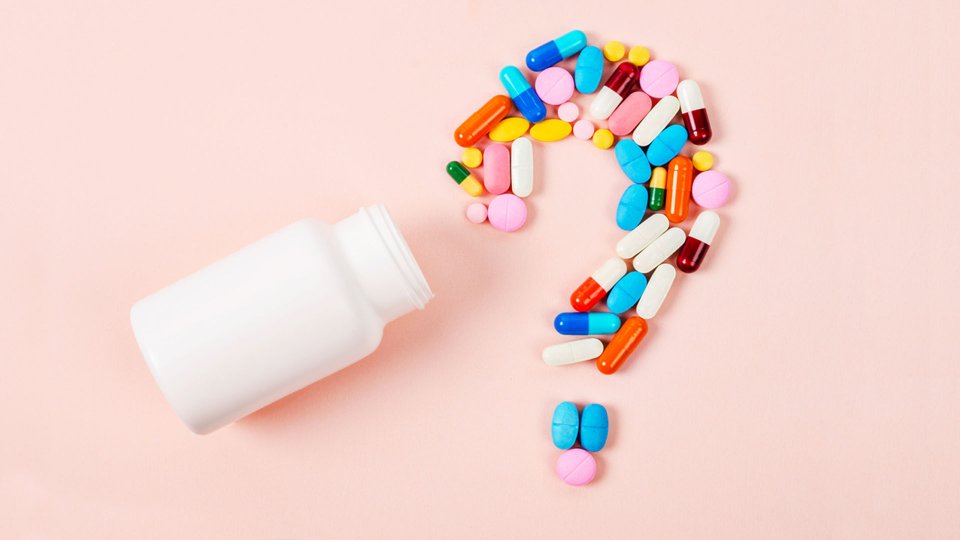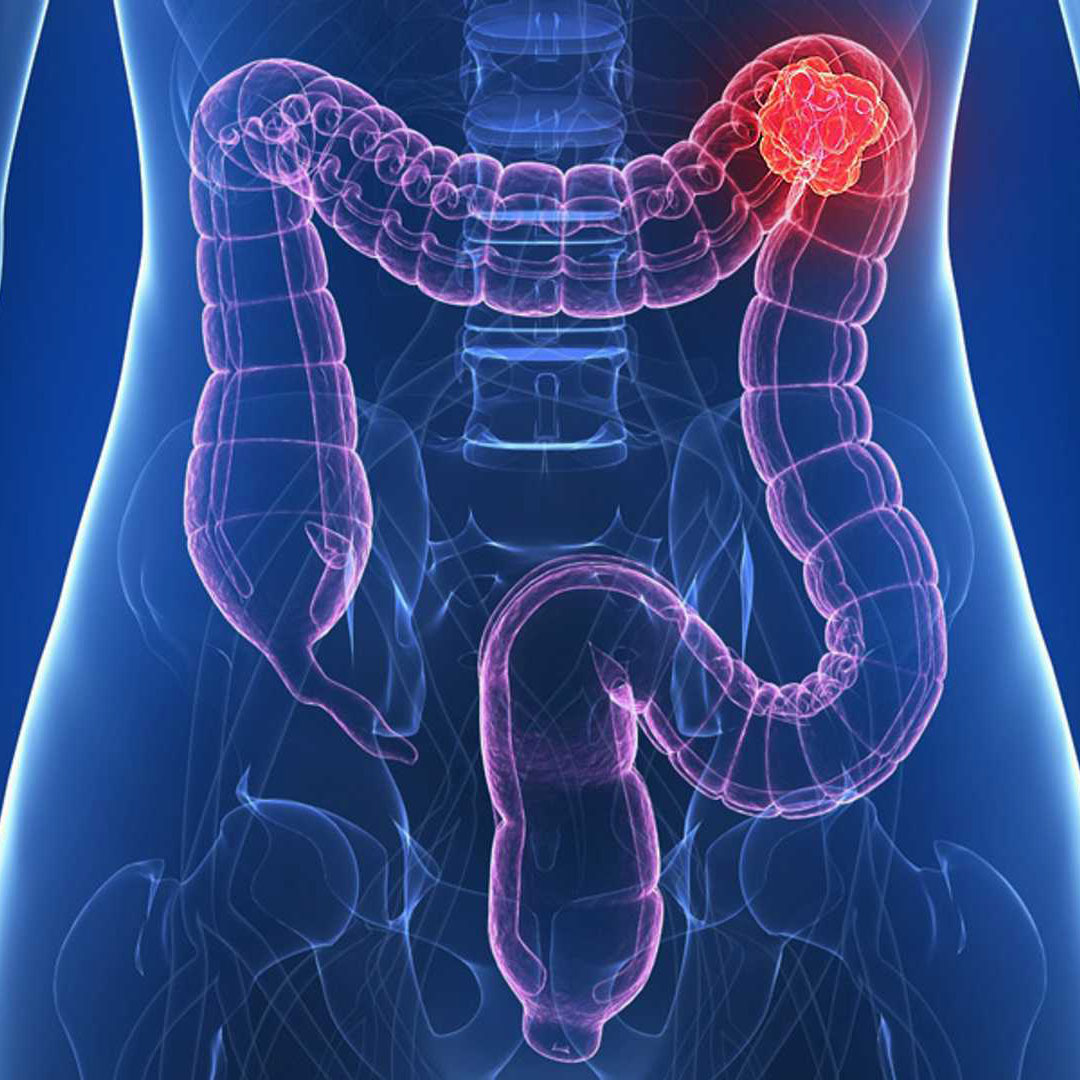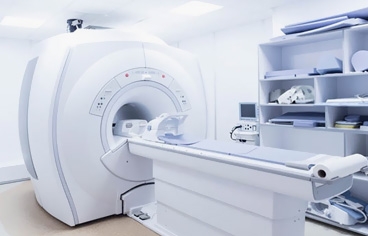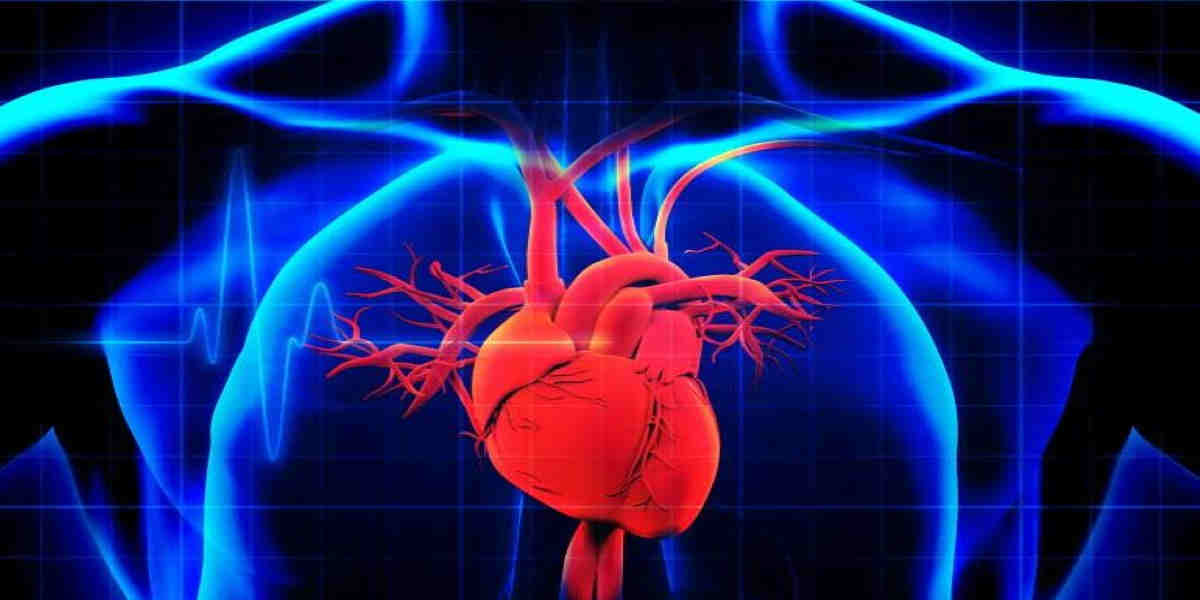When to Use Antibiotics? What are the side effects? What is Antibiotic Resistance?
- Home
- When to Use Antibiotics? What are the side effects? What is Antibiotic Resistance?

Antibiotics are used to treat or prevent some types of bacterial infections. Antibiotics work by killing bacteria or preventing them from spreading, but they are not effective against all of them.
Many mild bacterial infections can clear up on their own without antibiotics. Antibiotics are not effective against viral infections such as colds and flu. Antibiotics are no longer routinely used to treat some diseases. Doctors' advice should be followed as to whether antibiotics are needed. Antibiotic resistance is a huge problem. Using antibiotics when they are not needed may cause them to not be effective in the future when they are actually needed.
When Should Antibiotics Be Used?
Antibiotics can be used to treat bacterial infections in the following situations:
- If the likelihood of cure without antibiotics is low.
- If there is a possibility of infecting others.
- If the healing time will take longer without a prescription.
- If there is a risk of more serious complications.
People at high risk of infection may receive antibiotic treatment, known as antibiotic prophylaxis, as a precaution.
How to Use Antibiotics?
Antibiotics should be taken as stated in the package insert or patient information leaflet accompanying the medicine or as instructed by the doctor or pharmacist. Antibiotics can take the form of:
- Antibiotics in the form of tablets, capsules, or a drinkable liquid: These can be used to treat most types of mild to moderate infections in the body.
- Antibiotics in the form of creams, lotions, sprays and drops: These are often used to treat skin, eye or ear infections.
- Antibiotics in injections: These can be given as injections directly into the blood or muscle and are used for more serious infections.
What Should Be Done If You Forget to Take the Antibiotic Dose?
If you forget to take the antibiotic dose, you should consult the patient information leaflet or leaflet supplied with the medicine to learn what to do. If the person is still unsure of what to do, they should consult their family doctor.
In most cases, the missed dose can be taken as soon as remembered and the course of antibiotics can then continue to be used as normal. If it is too soon for the next dose, skip the missed dose and continue the regular dosing schedule.
IMPORTANT NOTE: A double dose of antibiotics should not be taken to make up for the missed dose.
What Happens in Overdose?
If a person accidentally takes an extra dose than recommended, the risk of side effects increases. It is unlikely that an extra dose of antibiotic taken by mistake will cause serious harm to the person, but the possibility of experiencing side effects such as stomach pain, diarrhea and nausea will increase.
If a person accidentally takes more than 1 extra dose of antibiotics, is worried about this situation, or experiences serious side effects, they should contact a doctor or call an emergency call center as soon as possible.
What are the Side Effects of Antibiotics?
As with any medication, antibiotics can cause some side effects. Most antibiotics cause no problems when used correctly, and serious side effects are rare.
Common side effects of antibiotics include:
- Vomiting,
- Nausea,
- Bloating and indigestion,
- Diarrhea.
Allergic Reactions Due to Antibiotic Use
Some people may have an allergic reaction to antibiotics, especially penicillins and another type of antibiotics called cephalosporins. Very rarely, this can lead to a significant allergic reaction (anaphylaxis), which is a medical emergency.
In the following cases, an emergency call center should be called or an emergency service should be consulted:
- If you have a skin rash that is itchy, red, swollen, blistered or scaly.
- If breathing is wheezing.
- If there is tightness in the chest or throat.
- If you have difficulty breathing or speaking.
- If the mouth, face, lips, tongue or throat begins to swell.
If such symptoms occur, the person may be experiencing a serious allergic reaction and may need emergency treatment in hospital.
How Should Pregnant and Breastfeeding Women Use Antibiotics?
Some antibiotics are not suitable for people with certain medical problems or women who are pregnant or breastfeeding. If a person is pregnant or breastfeeding, they should talk to their doctor so that he or she can prescribe the antibiotic that is most appropriate for them. A person should only use antibiotics prescribed for him/her and should never borrow antibiotics from a friend or family member. Some antibiotics do not interact well with alcohol and some other medications, such as birth control pills. The information leaflet that comes with the medicine should be read carefully and the person should discuss any concerns with their pharmacist or doctor.
What are the Types of Antibiotics?
There are hundreds of different types of antibiotics, but most of them can be classified into 6 groups:
- Penicillins (such as penicillin, amoxicillin, co-amoxiclav, flucloxacillin, and phenoxymethylpenicillin): Commonly used to treat a variety of infections, including skin infections, chest infections, and urinary tract infections.
- Cephalosporins (such as cephalexin): Used to treat a wide variety of infections, but some are also effective in treating more serious infections such as sepsis and meningitis.
- Aminoglycosides (such as gentamicin and tobramycin): Because they can cause serious side effects, including hearing loss and kidney damage, they are often used in hospitals to treat very serious illnesses such as sepsis and are usually given by injection. They can also be given as drops for some ear or eye infections.
- Tetracyclines (such as tetracycline, doxycycline, and lymecycline): They can be used to treat a wide variety of infections but are most commonly used to treat acne and a skin condition called rosacea. Tetracyclines may make the skin sensitive to sunlight, intense lamps, and artificial light sources such as tanning beds. Prolonged exposure to bright light should be avoided while taking these medications.
- Macrolides (such as azithromycin, erythromycin, and clarithromycin): They may be especially useful for treating lung and chest infections, or as an alternative for people who are allergic to penicillin, or to treat penicillin-resistant strains of bacteria.
- Fluoroquinolones (such as ciprofloxacin and levofloxacin): Broad-spectrum antibiotics once used to treat a wide variety of infections, especially respiratory and urinary tract infections. These antibiotics are no longer routinely used due to the risk of serious side effects.
Other antibiotics include; It contains chloramphenicol (used for eye and ear infections), fusidic acid (used for skin and eye infections), nitrofurantoin and trimethoprim (used for urinary tract infections).
Important Notes About Fluoroquinone Antibiotics
Fluoroquinolones can cause severe aches and pains. In very rare cases, fluoroquinolone antibiotics; They can cause disabling, long-term or permanent side effects that affect the joints, muscles and nervous system. Fluoroquinolone antibiotics can cause serious side effects in people who are at risk for heart valve problems. People with the following symptoms should stop taking fluoroquinolone therapy immediately and discuss this with their doctor:
- If you experience tendon, muscle or joint pain, usually seen in the knee, elbow or shoulder.
- If there is tingling, numbness or a feeling of needles sticking into the body.
- Swelling and edema in ankles, feet and legs.
- New heart palpitations (heartbeats that suddenly become more pronounced).
- Sudden shortness of breath.
In Which Situations Are Antibiotics Used?
Antibiotics are used to treat or prevent some types of bacterial infections. They are not effective against viral infections such as colds or flu. Antibiotics should only be prescribed to treat appropriate health problems. These problems may include:
- Such as acne, which is not serious but is unlikely to go away without antibiotics.
- Diseases that are not serious but can spread to other people if not treated promptly. For example, the skin infection impetigo or the sexually transmitted infection chlamydia.
- Where evidence suggests that antibiotics can significantly accelerate healing. For example, kidney infection.
- In cases with a risk of more serious complications such as cellulitis or pneumonia.
Antibiotics may also be recommended for people who are more vulnerable to the harmful effects of infection. This group may include:
- People over 75 years of age.
- Babies who are less than 72 hours old, have a bacterial infection, or are at a higher than average risk of developing an infection.
- People with heart failure.
- People who have to take insulin for diabetes.
- People with a weakened immune system due to an underlying health problem such as HIV or as a side effect of certain treatments such as chemotherapy.
Use of Antibiotics to Prevent Infection (Antibiotics as Preventive Treatment)
Antibiotics may also sometimes be given to prevent an infection rather than treat it. This is called antibiotic prophylaxis. Conditions for which antibiotics are given as preventative treatment include:
- Before some surgeries,
- After a bite or wound that may become infected,
- If the person has a health problem that means they are at higher risk of infection, for example if the person has had their spleen removed or is undergoing chemotherapy treatment.
Before Which Surgeries Is Antibiotic Prophylaxis Applied?
If the person is going to undergo surgery that carries a high risk of infection, it is recommended to use antibiotics. For example, antibiotics may be prescribed to people who will have the following surgeries:
- Some types of eye surgery. Like cataract surgery or glaucoma surgery.
- Joint replacement surgeries.
- Breast augmentation surgeries.
- Pacemaker surgeries.
- Surgeries to remove the gallbladder.
- Surgeries to remove appendicitis.
The surgeon will request whether the person undergoing surgery needs antibiotics, and this dose of antibiotic will be administered to you in the hospital before your surgery.
Using Antibiotics for Bites or Wounds
Antibiotics may be recommended for a wound that is likely to become infected. This could be, for example, an animal or human bite, or a wound that has come into contact with soil or feces.
Use of Antibiotics in Medical Conditions
Some people are particularly vulnerable to infections, making antibiotics necessary for them. For example:
- People whose spleens have been removed.
- Those undergoing chemotherapy for cancer.
- People with sickle cell anemia.
In some cases; Antibiotics may also be prescribed for people with an infection that recurs, is dangerous, or causes an increased risk of complications. For example:
- Cellulite.
- Urinary tract infections.
- Genital herpes.
- Rheumatic fever.
How Do Antibiotics Interact with Other Substances?
Antibiotics can sometimes interact with other medications or substances. This means they may have a different effect than expected. A doctor or pharmacist should be consulted to check whether other medicines are safe to take with antibiotics.
Some antibiotics should be taken with food, while others should be taken on an empty stomach. It is always recommended to read the leaflet that comes with the medicine.
Can You Drink Alcohol While Taking Antibiotics?
It is necessary to avoid drinking alcohol while taking medication or feeling unwell. However, some antibiotics can have side effects such as nausea or dizziness, and these effects may be worse when alcohol is consumed. It is necessary to consult a doctor or pharmacist to make sure whether alcohol should be consumed while taking antibiotics.
Alcohol Use with Metronidazole and Tinidazole
It is best to avoid alcohol completely while using these types of antibiotics:
- Metronidazole: An antibiotic sometimes used for dental or vaginal infections, skin infections, infected leg ulcers, and pressure sores.
- Tinidazole: An antibiotic sometimes used to treat many infections similar to metronidazole and also to help clear bacteria called Helicobacter pylori (H. pylori) from the intestine. Alcohol should be avoided for 48 hours after you stop taking metronidazole and for 72 hours after you stop taking tinidazole.
Drinking alcohol along with metronidazole or tinidazole can cause many side effects, such as:
- Nausea or vomiting.
- Stomach ache.
- Hot flushes.
- Fast or irregular heartbeat.
- Headache.
- Dizziness.
- Feeling sleepy.
Using Alcohol with Other Antibiotics
It is best to avoid drinking alcohol if the following antibiotics are being used:
- Linezolid: This drug may be affected by undistilled, fermented alcoholic beverages such as wine and beer.
- Doxycycline: Alcohol can affect this medication and the effectiveness of the medication may also be reduced in people who drink too much.
Alcohol Use with Birth Control Pills
Some antibiotics, such as rifampicin and rifabutin, may reduce the effectiveness of the birth control pill.
If a person has been prescribed rifampicin or rifabutin, they may need to use additional birth control methods, such as condoms, while taking the antibiotic.
It also does not combine well with some antibiotics, some medications, and herbal supplements. In such a case, the person may be prescribed a different antibiotic or told to stop taking certain medications or herbal supplements.
The leaflet that comes with the medicine should always be read and if any medicine or herbal product is used, this information should be shared with the doctor.
What is Antibiotic Resistance?
Antibiotics are no longer routinely used to treat infections. The reasons for this are:
- Many infections are caused by viruses. For this reason, antibiotics are not effective on these infections.
- Antibiotics are generally unlikely to speed up the healing process and may cause side effects.
- The more antibiotics are used to treat minor conditions, the greater the chance that antibiotics will become ineffective to treat more serious conditions.
Health organizations around the world are trying to reduce the use of antibiotics, especially for non-serious health problems.
In What Cases Is It Unnecessary To Take Antibiotics?
Antibiotics are no longer routinely used to treat the following conditions:
- Chest infections.
- Ear infections in children.
- Sore throat.
Antibiotic Resistance and Superbugs
Overuse of antibiotics in recent years has shown that they have become less effective, and this has led to the emergence of "superbugs". This is a big problem.
The following are types of bacteria that have developed resistance to many different antibiotics:
- MRSA (methicillin-resistant Staphylococcus aureus).
- Clostridium difficile (C. diff).
- Bacteria that cause multidrug-resistant tuberculosis.
These types of infections can be serious and difficult to treat. They are also an increasing cause of disability and death worldwide. The biggest concern in this regard is the emergence of new strains of bacteria that cannot be treated with existing antibiotics.
 What is Endometriosis (Chocolate Cyst)? What are the symptoms? How to Treat?
What is Endometriosis (Chocolate Cyst)? What are the symptoms? How to Treat?  Colon Cancer (Symptoms, Stages, Treatment)
Colon Cancer (Symptoms, Stages, Treatment)  Influenza (Flu) in Children
Influenza (Flu) in Children  Stomach Cancer Symptoms and Treatment Methods
Stomach Cancer Symptoms and Treatment Methods  What is Lymph Node Swelling? What Are The Reasons?
What is Lymph Node Swelling? What Are The Reasons?  When to Use Antibiotics? What are the side effects? What is Antibiotic Resistance?
When to Use Antibiotics? What are the side effects? What is Antibiotic Resistance?  What is Muscle Spasm?
What is Muscle Spasm?  What is MRI? How to Take an MRI with Medication? Is It Harmful?
What is MRI? How to Take an MRI with Medication? Is It Harmful?  What are the Causes of Diarrhea and Vomiting? How to Treat?
What are the Causes of Diarrhea and Vomiting? How to Treat?  What is Heart Failure? What are its stages? How to Treat?
What is Heart Failure? What are its stages? How to Treat?
